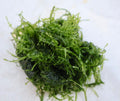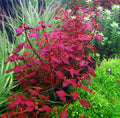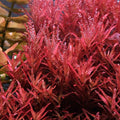Causes of Aquarium Fish Mortality and How to Prevent It!
Fish may make wonderful pets, with their vibrant colors and relaxing swimming motions, but it can be unsettling and heartbreaking when fish die for no apparent reason. There is always a reason, and knowing the most prevalent causes of aquarium fish fatalities might help fish owners avoid fatal errors in their tanks.
Causes of Aquarium Fish Mortality and How to Prevent It!
Fish are typically healthy, and it is unusual for a tank to see mass fatalities unless other circumstances are at play. Tank die-offs can occur for a variety of reasons, including:
New Tank Syndrome: Heavy amounts of nitrates and ammonium in the water can be lethal before a tank has formed the necessary chemistry to maintain healthy fish. Natural microorganisms in the water will eventually balance out these toxins, but in the meanwhile, fish may die unexpectedly.
To Prevent: Test a new tank for nitrate and ammonium levels on a regular basis, and replace the water as needed to bring levels down to fish-safe levels.
Rapid Water Changes: In a well-established tank, the water chemistry is carefully adjusted by resident fish, plants, and microbes. Quickly changing huge amounts of water will disturb the chemistry and shock the fish, resulting in death. Water should be changed on a regular basis, but drastic changes might be detrimental.
To Prevent: Change water carefully, switching just little amounts at a time, and wait 2-3 days before changing more water to allow the fish to adjust to gradual chemical changes.
Water Quality: The overall water quality in a tank is an important factor in fish health. The salinity of the water (for saltwater aquariums), pH levels, filtration effectiveness, and other quality concerns must all be kept within acceptable limits, otherwise any one of them might be the cause of dead fish.
Temperature Changes: Very abrupt alterations might be deadly.
To Prevent: Check the tank heater on a regular basis for optimal operation, and keep it away from anything that might impact its temperature, such as heating or cooling vents, sunny windows, or drafty locations.
Unexpected Toxins: Fish can be killed by even trace concentrations of harmful pollutants such as bug spray, hand lotion, perfume, soap, cleaning chemicals, and other seemingly harmless substances. If these objects pollute the water, fish will perish.
To prevent unintended contamination, use a sturdy cover and keep pollutants away from the tank.
Overfeeding: Fish just require a few mouthfuls of food every day, and despite their begging, they do not require any more rewards.
To Prevent: Establish a tight feeding plan and adhere to it. Adjust the feeding quantity until the fish devour all of the food in 1-2 minutes, and do not give them more.
Unhealthy Fish: If fish were already agitated, unwell, or in poor health before being placed to a tank, even the best aquarium conditions may be insufficient to keep them alive.
To Prevent: Be aware of the indications of common illnesses in fish you want to acquire, and always buy from experienced, trustworthy breeders or dealers. Choose only the healthiest fish in the greatest condition to ensure they can tolerate the pressures of shipping and reintroduction into a new tank.
Keeping fish may be a rewarding experience, and understanding why fish die helps you prevent the most prevalent causes of aquarium fish fatalities.
















